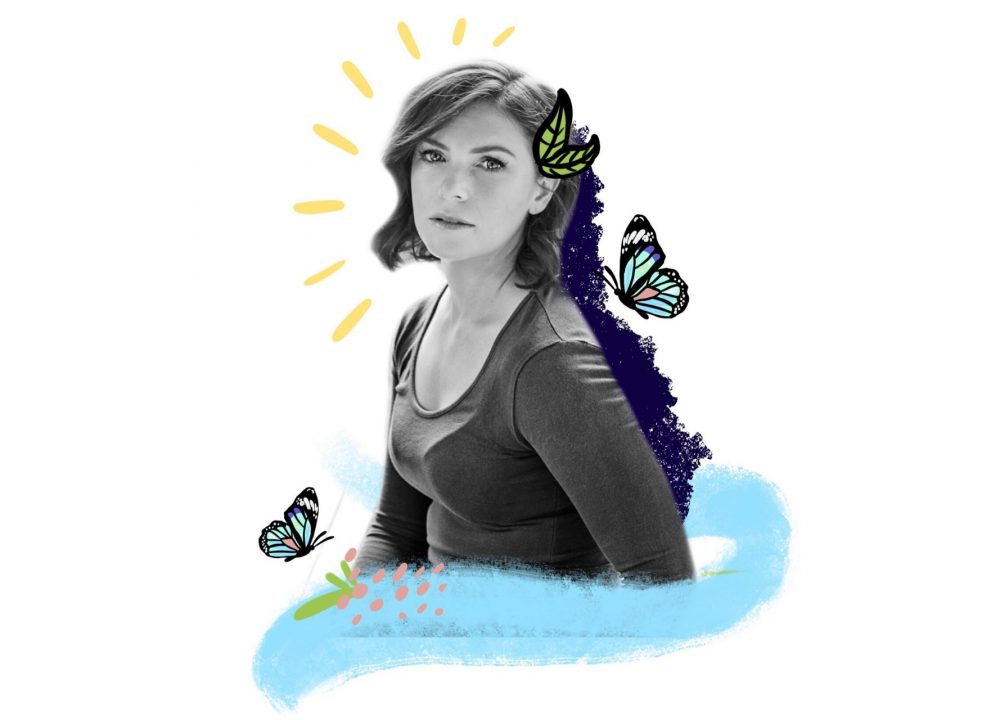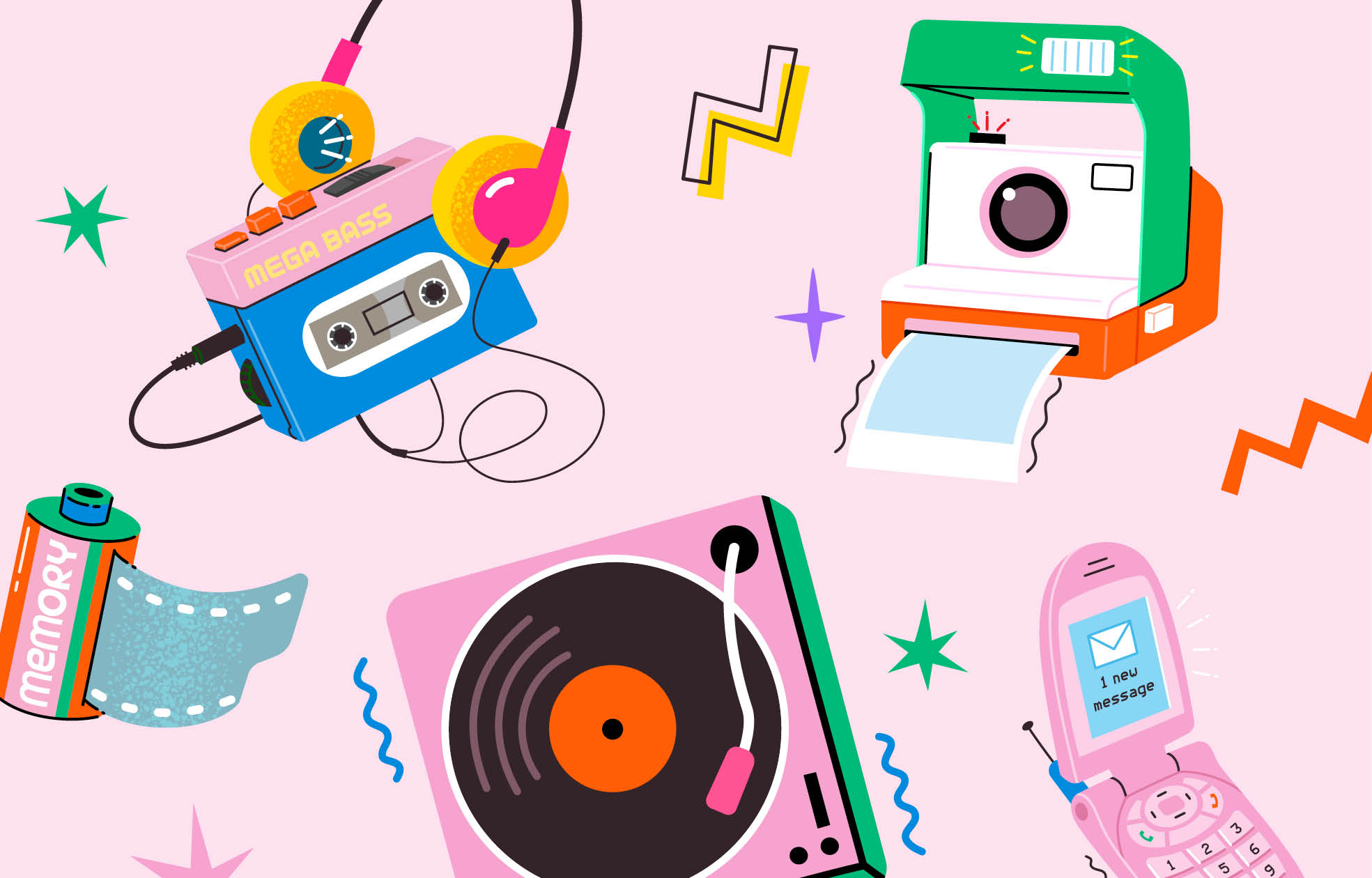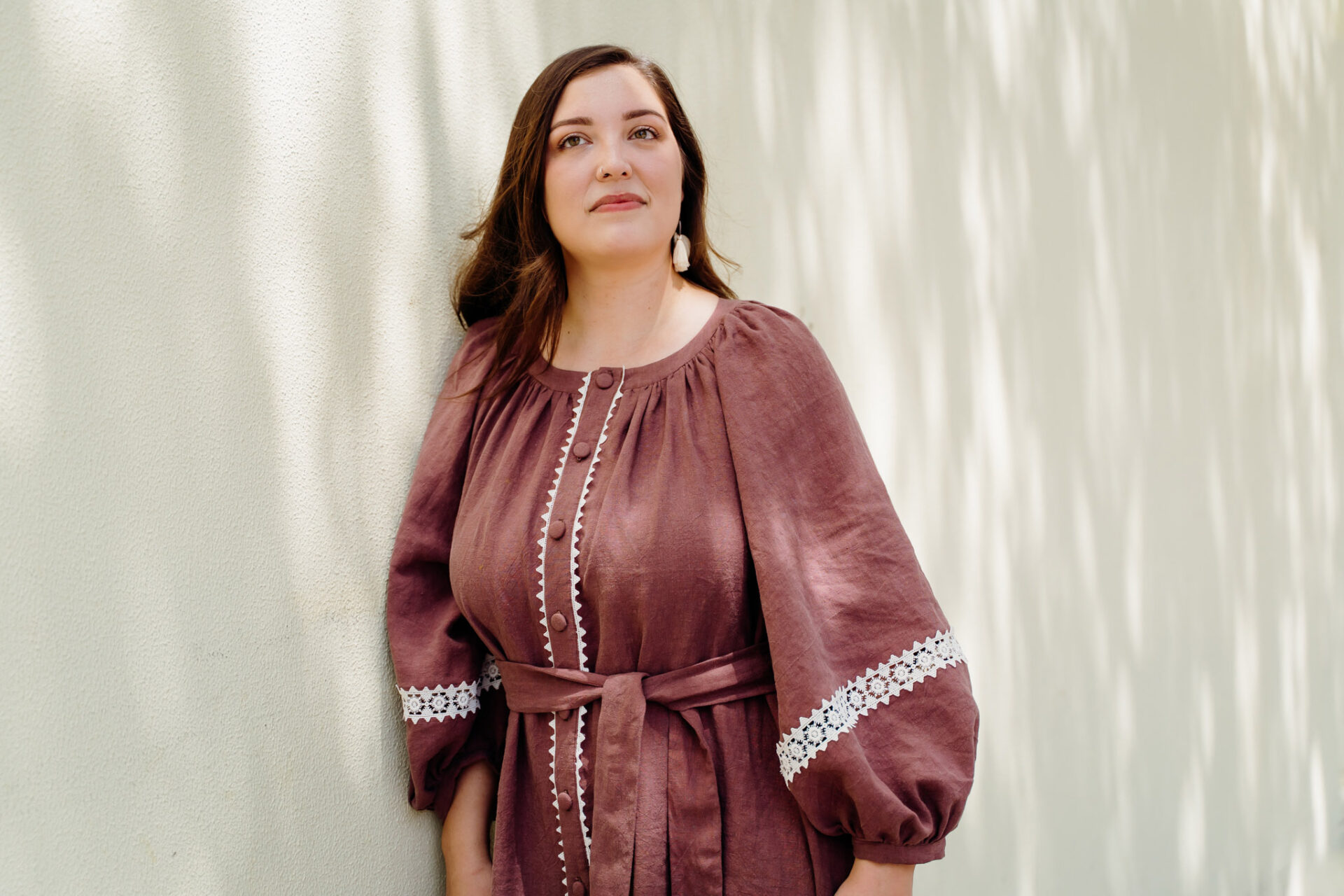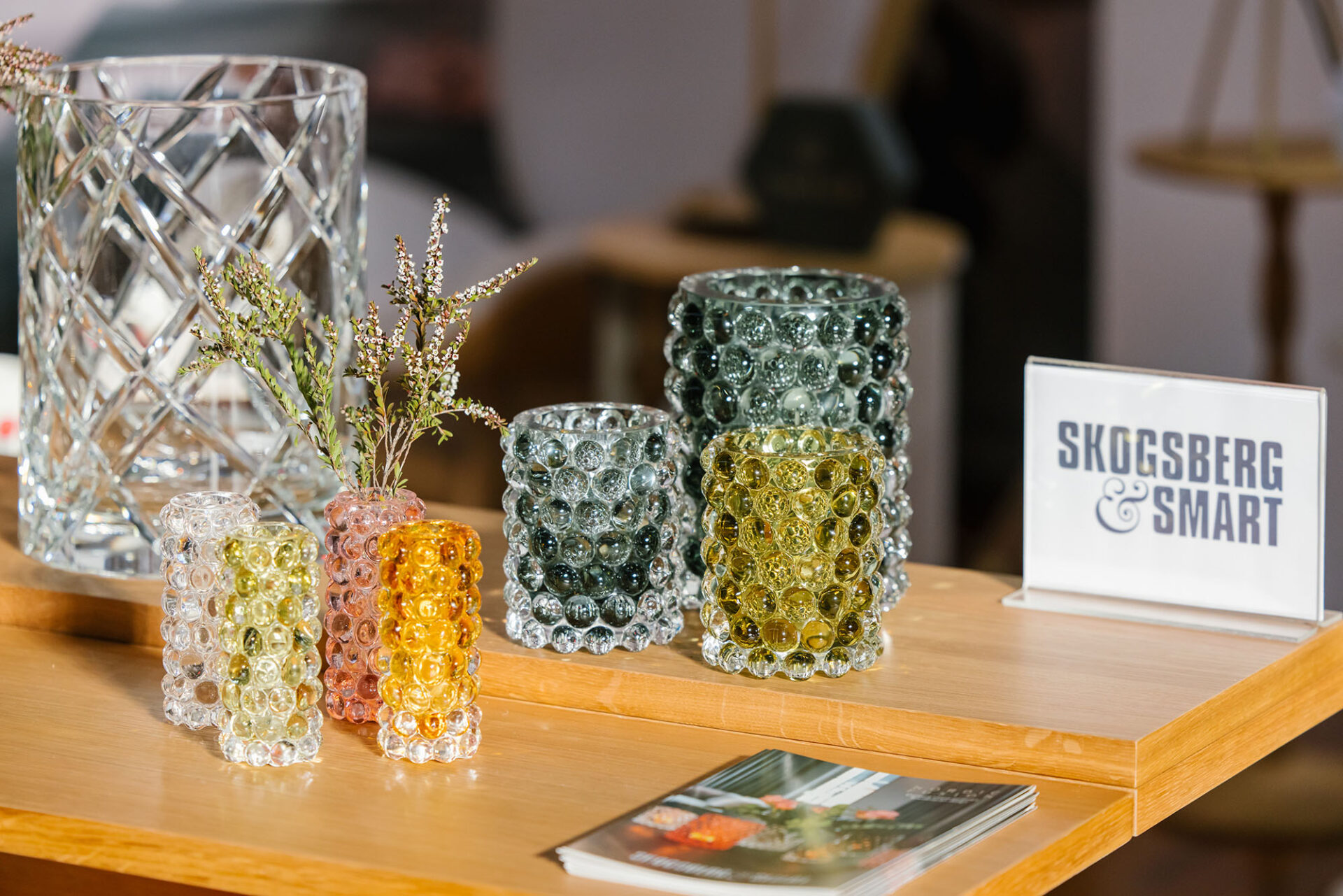The Helpers Series: Maree Lowes

- Words by Peppermint
Inspired by a wise (and widely shared) snippet of childhood advice courtesy of Mister Rogers – “look for the helpers” – activist and passionate changemaker Maree Lowes decided to rally some pals to offer up their best advice for getting through these challenging times.
Aiming to tackle the big feelings we’re all faced with in times of uncertainty, Maree and her “allies within our community” are going to be sharing some simple ideas on how to navigate a changing world by focusing on actionable tips and practical information, including humble activities such as gardening, cooking and getting back to nature.
Part one of ‘The Helpers’ begins with Maree’s ‘Mental Health Workout’, a 30-minute exercise created to help you reconnect with yourself and make sense of the world around you. Grab a pen and paper and get ready to tackle some big questions…
……….
Mental Health Workout – Maree Lowes
Actress, changemaker and EMMY Award-winning community manager, Maree has been watched on TV worldwide for the last decade in dirtgirlworld and Get Grubby TV. She has seeded change through her work with culture-shapers such as the Climate Council and VIVID Sydney. Currently completing her Masters in Sustainable Development and Disaster Resilience through the UN, Maree is passionate about how we cultivate a more resilient Australia for future generations.
……….
I’m an actress and a changemaker – it’s my job, and my purpose, to contribute to bettering the condition of people and the planet. My motley experience has led me to hang out at the intersection of storytelling, mental health and environmental education. I’m also currently studying Disaster Resilience through the UN which means this is certainly an interesting time to observe the vulnerabilities and the strengths in our systems. As we stay home, and our anthropogenic impact on ‘the environment‘ (aka our only home) shifts, the reprieve will be short-lived unless we seize this time to reset. If we use this time to shift from processes of domination and depletion, and instead position regeneration and resilience at the core of our systems, it will be a big opportunity for change. This knowledge is in me, even as I carry a heavy heart for so many people, and try to keep my elderly Dad well and my community safe. And yet, I’m like many of us – processing and coping and cultivating all at once.
As we’ve been getting so much disjointed information, I started to think about a frequently used line that we tell our kids in times of uncertainty: “look for the helpers”. I’ve done a bit of looking around and found some of the best helpers within our community for these uncertain times and gathered their thoughts and ideas to help us through – keep an eye out for the rest of the series to follow. To get us started, here is my 30-minute workout (well, it’s more like a check-in) to reconnect with yourself and reorientate within the world that has shifted around you.
I’ve broken this exercise up to cover the key parts of life where we might experience feelings of overwhelm. These tips aren’t perfect, or meant to replace the advice of experts in any way, but I do hope they help you feel connected as we navigate this stream of change.
You’ll need:
• Some paper
• A pen
• 30 minutes of no screen time.
For each question, write your answer down on the page (answering in your head doesn’t count!). Let’s do this together.
……….
You, your family and your community
• At this moment, are you feeling centred and calm? If this is hard to answer, tune into your body. For example, are you fidgeting or are you sitting still? Is your breath consistent? Don’t try to correct your behaviour, just notice it.
• Next, think back over your day. Which triggers have been knocking you off course? For example, what has caused you to hold your breath or breathe quickly? When have your thoughts raced or become scattered? Write these moments down.
• Which of these actions are within your control? What is outside of your control?
Next, order the things you CAN do from 1–10 in order of priority, and then again from A–B in terms of which is easiest or quickest to do… Anxiety can bring fuzziness and it can be hard to see clearly. This activity is about making a list, an actionable map of what’s possible for you to move forward with.
• Who is most vulnerable in your community? How are they vulnerable? (Remember, the answer to this question may be YOU.)
• Are you in a position to help them? If not, who is?
You don’t need to act on this information right now. This is simply about allowing time and space to create clear understanding.
……….
Staying home
Lockdown may be starting to feel less strange now, but working by ourselves or parenting in isolation won’t come naturally to a lot of us. We’re creatures who need connection, biodiversity and community on both a cellular and emotional level. So it’s going to take time to get better at this and find ease while staying home.
Let’s be clear, though – it’s totally okay to have one or two days a week where we completely lower the expectations we have of ourselves. Watch Netflix, eat whatever you like, spend the day in your PJs (pants are optional, but I can’t say I’m a fan!). I also believe this is an opportunity to opt out of the capitalist, corporate team-speak that demands productivity, rather than connection and purpose. So use this time to find out what works for you.
In the meantime, here’s a list of handy tips that will help get your week on track. Put a tick next to each one that you complete three or more days each week. If you feel like there’s room, pick a positive habit to add in the following week, and then another habit the week after.
• Make your bed. Mums and army sergeants are really onto something here. Research even agrees (and by research I mean reputable stuff like interweb articles that list ‘13 Remarkable People from History Who Made Their Beds’)… Anyway, trust me. It’s the easiest first win of the day.
• Differentiate the days of the week by finding new rituals. My husband and I have started walking to our local bakery each Wednesday morning. It’s a simple pleasure, but I always look forward to the outing.
• If you’re working from home, set a workspace where you ‘go’ to work, like in a quiet room or corner. You can create boundaries in small spaces by the way you arrange your table or even just by putting headphones on.
• Get dressed sometimes. It’s about setting an intention that is different from when you’re just lazing about at home (and pants are still optional!).
• Get some help. There’s an app for that… no, really! I’ve been using some awesome apps to help keep my routine during all this time at home. Downdog is my fave for moving my body – it’s an amazing yoga app (the first one I’ve ever found that I actually like) and you can customise pretty much everything about it. My husband is really into The Fabulous app, which helps him stay focused while working from home. Sidenote: I also love bug identification apps, because my favourite thing at the moment is being an insect whisperer in my garden. No surprise, really…
……….
Stocking up and storing
First of all, what are you buying? And why are you buying it?
• Where are you buying from?
If going to a big supermarket at the moment equals a half-day anxiety attack, you can choose to do things differently. Firstly, have a shopping list and stick to it. Secondly, buy a little bit more – not toilet paper-hoarding prepper-levels, but stock-up within reason – and go less often. And my best advice? Find alternative places to buy from. There are awesome fresh fruit and veg cooperatives in almost every area now that do pickups and deliveries, which means contact-free buying while also supporting local food producers. I also get coffee beans, flour and eggs with my fruit and veg delivery. What’s not to love?
• Do you know how to best store the food you have purchased? Think about decomposition, mould, pantry moths and other pests. If not, who can you learn these skills from?
Some of the contributors you’ll hear from in this series are amazing resources for zero waste food – look for the helpers! Passionate foodies, makers and creatives such as Sarah Wilson, Anita VanDyke and Rebecca Sullivan are some of my favourite helpers on this topic. Kate Nelson is great, too.
• Pick two new helpful habits to learn first. My suggestions: how to best store grains, and how to pickle and preserve fresh veggies.
……….
Information and overwhelm
• How many media sources are coming into your world each day with information about COVID-19? In your answer, include media, social media platforms and people you know with frequent updates.
• Name the three sources you trust most.
• How can you put the other sources on pause, just for a little while?
• Can you unfollow someone, switch off a device, or let a colleague know you need a break from news updates?
Personally, I’m having a break from social media right now, but my email subscriptions still bring me curated updates, and I check news websites at a time that suits me.
……….
Morning ritual and nature
What are three morning rituals you can do at home to ground yourself? My top three suggestions are:
• Move your body – stretching and little movements count!
• Connect with nature. Water a pot plant, grow mushrooms on your kitchen bench, pat a pet, take the compost out, go for a walk in the park, or dive into saltwater… These activities are all awesome for keeping your microbiome in balance (and therefore your immunity, digestion and neurotransmitters – which all help regulate emotion). Biodiversity is what keeps systems thriving – including our body’s systems.
• Think about the positive things each day can offer. Each morning before I get out of bed, I list three things, people or upcoming moments I’m grateful for that day.
……….
Look for the helpers
As I said at the start, I’m not leaving you alone. This is an incredible time to turn our focus and time back to investing in our community, even if we’re not physically together. Some of our best helpers in these uncertain times include:
• Medical doctors
• Disaster risk reduction experts
• Allied health professionals for well-rounded wellbeing
• Holders of granny skills and grandpa ways
• Picklers, preservers and DIY-ers
• Home growers and backyard farmers
• Zero-waste warriors
• Your own intuition…
Have you got someone for most of these categories?
If not, don’t worry. You can share mine. From bestselling author Sarah Wilson and Gold Logie nominee and garden guru Costa Georgiadis, to microbiome specialist MD Zach Bush, and Order of Australia Medal recipient and mum Jessica Smith, we’ll be bringing some helpers to you over the next few weeks – along with beautiful images from the artistic hands of Em Ehlers from Eco With Em. We hope ‘The Helpers’ series will be useful as you seek out wellbeing and connection during this time of physical distance and change. Remember, we’re all in this together…
……….
These tips aren’t perfect and don’t replace the advice of experts in any way. But I hope they help you feel connected as we navigate this trying time… Please note, if you’re in a high risk category, have already tested positive to COVID-19, have existing wellbeing conditions or are in mandatory lockdown, this won’t be for you.
……….
WORDS: MAREE LOWES
ILLUSTRATION: EMILY EHLERS
JOIN OUR MAILING LIST
Brighten up your inbox with our not-too-frequent emails featuring Peppermint-related news, events, competitions and more!
explore
More articles
Look, I don’t want to make anyone panic but IT’S DECEMBER!!! If you’re planning to give homemade gifts, you’re going to have to act fast. …
Hang out with us on Instagram
🌻 The Paddington 🌻
This is a much-loved staple, created for Issue 50 in 2021. We love seeing the #PeppermintPaddingtonTop continually popping up in our feeds!
How stunning is our model Elon MelaninGoddessEfon – she told us it was one of the first times she had been asked to come to a shoot with her natural hair. 🌻
We worked with South African patternmaker Sarah Steenkamp of @FrenchNavyNow_ to create this wardrobe essential – the perfect puff-sleeve blouse. Raglan sleeves make it the ultimate beginner sew, plus the gorgeous back buttons let you add your own personal twist.
Pattern via the link in bio! 🪡
Photos: @KelleySheenan
Fabric: @Spoonflower
Model: MelaninGoddessEfon

“In the 1940’s, Norwegians made and wore red pointed hats with a tassel as a form of visual protest against Nazi occupation of their country. Within two years, the Nazis made these protest hats illegal and punishable by law to wear, make, or distribute. As purveyors of traditional craft, we felt it appropriate to revisit this design.”
Crafters have often been at the heart of many protest movements, often serving as a powerful means of political expression. @NeedleAndSkein, a yarn store in Minnesota, are helping to mobilise the craftivists of the world with a ‘Melt The Ice’ knitting pattern created by @Yarn_Cult (with a crochet pattern too), as a way of peaceful protest.
The proceeds from the $5 pattern will go to local immigrant aid organisations – or you can donate without buying the pattern.
Raise those needles, folks – art and craft can change the world. 🧶
Link in bio for the pattern.
Images: @Gather_Fiber @NeedleAndSkein @a2ina2 @KyraGiggles Sandi.204 @WhatTracyMakes AllieKnitsAway Auntabwi2
#MeltTheIce #Craftivism #Knitting #CraftForChange

TWO WEEKS TO GO! 🤩
"The most important shift is moving from volume-led buying to value-led curation – choosing fewer, better products with strong ethics, considered production and meaningful stories. Retailers have real influence here: what you buy signals what you stand for. At Life Instyle, this means using the event to discover and invest in small-scale, planet-considerate brands that align with your values and your customer’s conscience. Consumers don’t need more things; they need better things, and retailers play a key role in selecting, contextualising, and championing why those products matter."
Only two more weeks until @Life_Instyle – Australia`s leading boutique retail trade show. If you own a store, don`t miss this event! Connect with designers, source exquisite – and mindful – products, and see firsthand why this is Australia’s go-to trade show for creatives and retailers alike. And it`s free! ✨️
Life Instyle – Sydney/Eora Country
14-17 February 2026
ICC, Darling Harbour
Photos: @Samsette
#LifeInstyle #SustainableShopping #SustainableShop #RetailTradeEvent

Calling all sewists! 📞
Have you made the Peppermint Waratah Wrap Dress yet? Call *1800 I NEED THIS NOW to get making!
This gorgeous green number was modelled (and made) by the fabulous Lisa of @Tricky.Pockets 🙌🏼
If you need a nudge, @ePrintOnline are offering Peppermint sewists a huge 🌟 30% off ALL A0 printing 🌟 when you purchase the Special Release Waratah Wrap Dress pattern – how generous is that?!
Head to the link in bio now 📞
*Not a real number in case that wasn`t clear 😂
#PeppermintWaratahWrapDress #PeppermintPatterns #SewingPattern #WrapDress #WrapDressPattern

8 Things to Know About January 26 - from @ClothingTheGaps:
Before you celebrate, take the time to learn the truth. January 26 is not a day of unity it’s a Day of Mourning and Survival for Aboriginal and Torres Strait Islander peoples.
It marks the beginning of invasion, dispossession, and ongoing colonial violence. It’s time for truth-telling, not whitewashed history.
Stand in solidarity. Learn. Reflect. Act.
✊🏽 Blog written by Yorta Yorta woman Taneshia Atkinson.
🔗 Link in bio of @ClothingTheGaps to read the full blog
#ChangeTheDate #InvasionDay #SurvivalDay #AlwaysWasAlwaysWillBe #ClothingTheGaps

As the world careens towards AI seeping into our feeds, finds and even friend-zones, it`s becoming increasingly hard to ignore.
We just wanted to say that here at Peppermint, we are choosing to not print or publish AI-generated art, photos, words, videos or content.
Merriam-Webster’s human editors chose `slop` as the 2025 Word of the Year – they define it as “digital content of low quality that is produced usually in quantity by means of artificial intelligence.” The problem is, as AI increases in quality, it`s becoming more and more difficult to ascertain what`s real and what`s not.
Let`s be clear here, AI absolutely has its place in science, in climate modelling, in medical breakthroughs, in many places... but not in replacing the work of artists, writers and creatives.
Can we guarantee that everything we publish is AI-free? Honestly, not really. We know we are not using it to create content, but we are also relying on the artists, makers and contributors we work with, as well as our advertisers, to supply imagery, artwork or words created by humans. AI features are also creeping into programs and apps too, making it difficult to navigate. But we will do our best to avoid it and make a stand for the artists and creatives who have had their work stolen and used to train AI machines, and those who are now losing work as they are replaced by this energy-sapping, environment-destroying magic wand.
Could using it help our productivity and bottom line? Sure. And as a small business in a difficult landscape, that`s a hard one to turn down. We know other publishers who use AI to write stories, create recipes, produce photo shoots... but this one is important to us.
`Touch grass` was also a Merriam-Webster Word of the Year. We`ll happily stick with that as a theme, thanks very much. 🌿

















